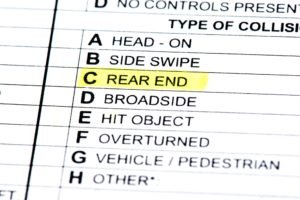
Due to the highly individual nature of post-traumatic stress disorder (PTSD) after car accidents, there is no average settlement amount. How your crash affects your mental health is personal, and damages can reflect that.
PTSD compensation may also be bundled with other aspects of a settlement, such as pain and suffering. Understanding what you may receive requires evaluating several variables.
Factors Affecting PTSD Settlements
Mental health issues impact victims in many ways. The Mayo Clinic lists several symptoms and complications for PTSD, ranging from trouble sleeping to flashbacks to avoidance behaviors. How your PTSD manifests plays a role in your settlement amount.
Some of our main considerations when valuing your case are:
- Physical injuries and medical bills
- Impact on your job
- Changes to relationships
- Accident circumstances
By gathering evidence and information in these areas, we can gain an idea of the appropriate damages to pursue.
Whether Your PTSD Is Linked to a Physical Injury
While it can be challenging to prove what is happening in your mind, physical injuries tend to leave a paper trail, such as X-rays, doctor’s visits, and prescription refills.
If you were in a car accident that not only injured you but also caused the death of a loved one, you could develop PTSD. Likewise, injuries that change your life, temporarily or permanently, and were caused by a traumatic event could cause you to develop phobias, experience nightmares, and avoid similar situations.
Therefore, part of our pursuit of PTSD damages may be supported by your physical injuries. This statement is not to say you must sustain serious injuries to suffer PTSD, but that injuries can be a facet to your case valuation.
Medical Bills Associated with PTSD for Which We Can Help You Seek Reimbursement
We can also use medical bills and records to support your claims of PTSD so that you can be reimbursed through the settlement. The expenses you can claim include:
- Psychological counseling
- Alternative therapies
- Prescription medication
- Support animals
How Your Condition Has Impacted Your Ability to Work
PTSD can be destabilizing, impacting your ability to keep a job. This condition can be even more challenging if you are required to drive or operate machinery and can no longer do so without experiencing symptoms.
Even if your job does not directly remind you of your experience, PTSD’s impact on sleep, mood, and thought patterns can cause you to miss work or change what you can do in your field. As a result, we consider the following in your settlement:
- Lost wages
- Changes to work ability
- Job retraining
- Future lost earning capacity
How Your Condition Has Affected Your Relationships
Your settlement should reflect PTSD’s far-ranging effects, especially in personal relationships. You may notice difficulty communicating with a loved one or find it hard to express what you’re thinking or feeling to others. You might have angry outbursts, high anxiety, or constantly feel on high alert, making you irritable or too tired to spend time with loved ones.
If your disorder has affected your intimacy with your spouse, changed how you relate to your children, or created challenges in interacting with family or friends, we can fight for loss of consortium damages.
Aspects of Your Accident that Trigger PTSD in Your Everyday Life
Some accidents are uniquely traumatic, such as:
- Rollovers
- T-bone crashes
- Collisions involving pedestrians
- Accidents involving fire
- Big rig accidents
The circumstances surrounding your crash may help us determine how your PTSD has affected you. For example, your crash may be associated with certain stimuli. If these stimuli are common in your neighborhood, we may argue for additional damages for moving expenses or extra compensation for that suffering.
Laborde Earles injury was great for me they took care of me very fast and professional. If for any reason I need legal help they will be who I use.
ClientAn Attorney Can Help You Prove Your Emotional and Mental Wounds
According to the National Institute of Mental Health (NIMH), victims of PTSD must meet certain requirements to be diagnosed. This diagnosis includes more than one month of:
- One re-experiencing symptom (flashbacks, intrusive thoughts)
- One avoidance symptom (avoiding reminders of the event)
- Two arousal and reactivity symptoms (sleep troubles, being on edge, reckless behavior)
- Two cognition and mood symptoms (loss of interest, negative emotions, memory difficulties)
Types of Evidence You Can Use to Prove Your PTSD
Evaluating and highlighting these symptoms not only proves your pain but also gives us insight into the areas of your life most affected by the disorder. We can provide evidence supporting your diagnosis through:
- Witness testimony
- Expert analysis
- Psychological evaluations
- Prescriptions
- Receipts for relevant over-the-counter (OTC) medications
- Medical records
- Work history
Expert Testimony Helps Chart Your Recovery
Consulting experts helps establish a medical and economic prognosis for your PTSD in the months and years to come. Expert witnesses can provide insight into your car accident experience based on the evidence they review. They will draw upon their observations, expertise, and specialized knowledge to determine what happened. Their professional opinion can help others understand how your PTSD developed after the accident. We can help calculate your future losses by talking with:
- Doctors: The Mayo Clinic describes how a doctor can conduct a physical exam to confirm that other medical issues didn’t cause your condition. They also can perform a psychological evaluation and consult with the current edition of the Diagnostic and Statistical Manual of Mental Disorders before diagnosing PTSD.
- Therapists: They can confirm a patient’s PTSD-related stressors and describe the treatments a patient has received or will need to help them manage their PTSD symptoms.
- Economists: They can quantify your losses from the car accident and explain the economic impact they will have on your short- and long-term finances. Their calculations, data, and analysis can underscore a plaintiff’s compensation request.
- Actuaries: They can weigh in about how a car accident can affect a victim’s long-term employment prospects and their benefits, such as a retirement pension. They will use their calculations and other actuarial methods to explain the scope of the victim’s losses.
Having an expert witness testify on your behalf adds credibility to your claim that you have post-traumatic stress disorder. The expert witnesses listed above can explain PTSD to people who don’t know about the condition or understand its effects. They can back up your claims and make the connection between how a traumatic event – such as a vehicle accident – can affect a person and lead to PTSD.
With the help of these professionals, we can arrive at an understanding of how your PTSD will affect you and pursue appropriate compensation. Their testimony can also help show how we calculated your compensation request.
I thank God for Digger & David. I don’t know what we would have done if it hadn’t have been for them.
Rick Smith | ClientProving How Your Car Accident Caused PTSD
Once we have gathered all the evidence and documentation, we must prove the role the defendant’s negligence played in your PTSD diagnosis. The four elements we must show are:
- The driver who caused the accident owed you a duty of care. Everyone assumes this duty when they operate a vehicle on the road.
- The driver failed to uphold this duty by driving recklessly or carelessly. We will show how the driver’s actions caused the crash.
- Because of this breach of duty, the driver caused your accident, leaving you with post-traumatic stress disorder and other injuries. Therefore, we must prove you have PTSD, and the car accident caused it. Expert witness testimony and other documentation of your condition will help establish this connection.
- Your PTSD led to recoverable damages, including the expenses you paid for mental health treatment and other services.
Showing how your case contains each of these elements will help us establish your claim or lawsuit for compensatory damages.
The reassurance from Digger and his staff gave me that renewed hope that it’s going to be okay down the road.
ClientLet Our Attorneys Help You Manage Your Case
For questions about what you can expect in a settlement for PTSD after a car accident, contact the team at Laborde Earles Injury Lawyers. Your settlement should reflect what you experienced, provide relief for your current circumstances, and compensate you for future expenses. That means it will be a personalized amount tailored to you.
Call our office today at (337) 777-7777 for a free case review. Don’t pay us unless you win awards.





